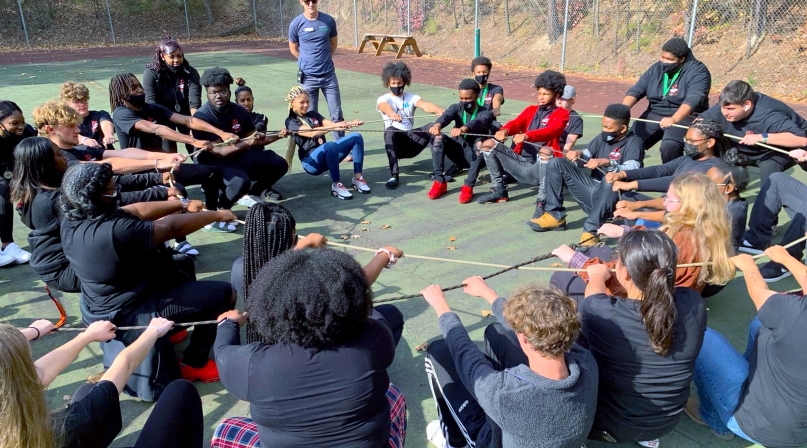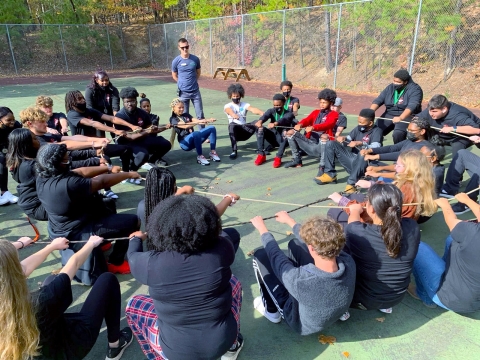Teen court intervenes for Arkansas youth

Key Takeaways
Leadership comes in different forms, and Pulaski County, Ark. leaders are betting that many young leaders just haven’t had the opportunity to step up yet.
Through its teen court restorative justice program, Pulaski County and the Pulaski County Special School District debuted a class in each of the district’s four high schools — dubbed “Juvenile Justice” — where peer restorative justice takes priority over punitive measures.
“When we look at the district, they have a lot of kids suspended from schools, they don’t always know what conflict resolution is,” said Jamie Scott, director of Pulaski County Youth Services. “If we can teach them a different way to handle conflict, a different way to handle frustrations, to manager anger and process what they’re going through, they can learn and grow.”
What sets Pulaski County’s model apart from the restorative justice systems at work throughout the country is that the four high schools in the system offer it as a yearlong class, and the participants earn credit. The program partners with District Court Judge Mark Leverett, who oversees the cases and decisions.
“We build an entire curriculum and because it’s not outside of school hours, it doesn’t complicate things for students who have jobs or transportation needs,” Scott said. “And just like any other class, this can spark careers.”
The participants manage their own courtroom and students play the roles of prosecutor and defender, making their arguments and advocating for an equitable settlement and penance. That penance often involves acts of service and other restorative justice measures.
“It’s kind of surprising and also reassuring how these kids buy in and take ownership and do a good job,” said County Judge Barry Hyde. “We just provide the means, the funding and the boots on the ground and they make it work.”
The program has the byproduct of being a leadership skills program, including public speaking, rhetoric and negotiation.
“These kids may not be traditional leaders, but they have it in them,” Jones said. “The ACES (adverse childhood experiences) scores are high where these kids are coming from, they’re living in environments with trauma and may not have been taught the skills they need to handle issues…they just want to fight.
“We’re trying to stop them before they’re in the justice system. This is trying to be a speed bump in the school-to-prison pipeline.”
Jones and Hyde acknowledge that often, school resource officers are forced to just move kids along in the disciplinary process, so they have welcomed the teen court system since it started in fall 2020.
“They see our passion, they see us putting these resources toward them,” Jones said. “This isn’t lost on them.”
The 2021-2022 school year has seen 115 students in four schools enrolled.
“We have to try and step in to help the kids who are getting involved in the system and try to see life through their eyes,” Hyde said. “It’s most often that there’s no family life or stable home, nobody is teaching them those life lessons and we don’t want them picking up alternative life lessons.”

Attachments
Related News

House Agriculture Committee introduces 2026 Farm Bill
On February 13, House Agriculture Committee Chairman G.T. Thompson (R-Pa.-15) introduced the House version of the 2026 Farm Bill, the Farm, Food, and National Security Act of 2026.

USDA and HHS release new dietary guidelines
On January 7, U.S. Department of Agriculture Secretary Brooke Rollins and U.S. Department of Health and Human Services Secretary Robert F. Kennedy, Jr. unveiled the new Dietary Guidelines for Americans, 2025–2030.
